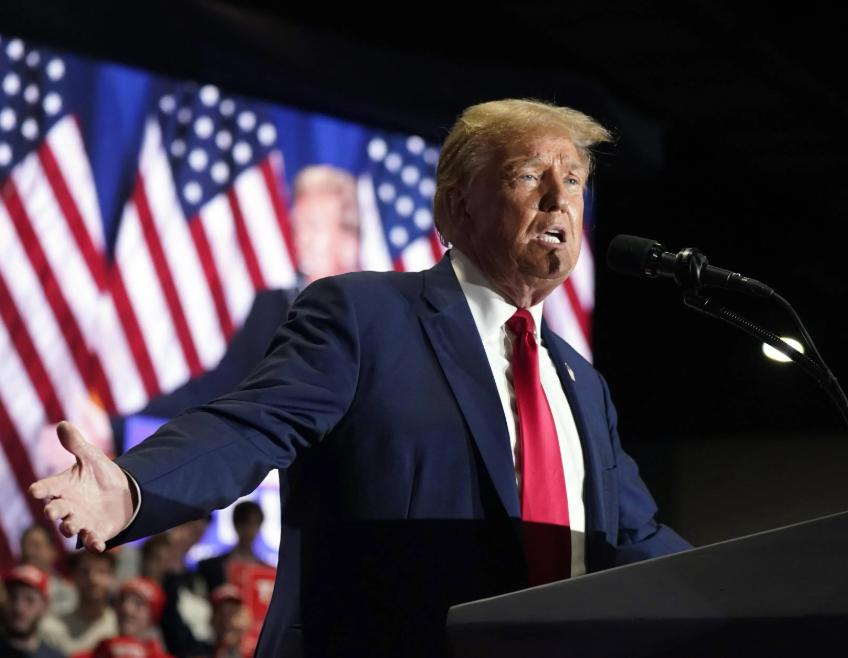
On April 2 local time, the White House issued a statement saying that US President Donald Trump declared a national emergency on the same day to improve the competitive advantage of the United States, protect US sovereignty, and strengthen US national and economic security. Trump will impose so-called "reciprocal tariffs" on trading partners. He said there would be a base tariff rate of 10 percent for all countries, which would take effect on April 5. At the same time, higher tariffs will be imposed on countries that impose higher rates on the United States. For Canada and Mexico, the United States will be exempt from the benchmark 10 percent tariff, as well as reciprocal levies for specific countries. Trump said the 10 percent tariffs would only take effect if the 25 percent tariffs on Canadian and Mexican imports were terminated or suspended. The 25 percent tariff is based on allegations that neighboring countries have failed to stem the flow of drugs and crime into the United States. Some goods will not be subject to "reciprocal tariffs," including steel and aluminum products that are already subject to Section 232 tariffs, automobiles and auto parts, goods that may be subject to future Section 232 tariffs, and energy and certain other minerals that the United States does not have, the statement said. In addition, gold bars, copper, pharmaceuticals, semiconductors and wood products are not subject to "reciprocal tariffs."
The occurrence of Trump's "tariff stick" has a very complex and multi-faceted impact in the financial and other fields. First, the impact on the global trade environment, Trump's tariff policy will increase international trade tensions, may trigger a global trade war. In order to safeguard their own interests, other countries are likely to resort to retaliatory tariffs, destabilizing global supply chains. The policy of "reciprocal tariffs" runs counter to the principles of the multilateral trading system and could lead to further fragmentation of the global economy. This move by the Trump administration is promoting trade protectionism, which is contrary to WTO rules and will seriously undermine the multilateral trading system. A tariff war would lead to an increase in trade barriers, which would inhibit global trade and investment activity. This will affect global economic growth and reduce the living standards of people in all countries.
The second is the impact on the financial market, the tariff war has led to significant volatility in global stock markets. After Trump announced the tariff policy, global stock markets generally fell, and investor confidence was severely hit. Especially those industries closely related to international trade, such as automobiles, electronic products, etc., the stock prices of their related companies have been hit harder. The tariff war has rattled global currency markets. Emerging market currencies came under pressure as the dollar strengthened on safe-haven demand. The uncertainty of tariff policy has led to increased investor concerns about the global economic outlook, which in turn has triggered abnormal capital flows and increased exchange rate volatility. The tariff war has led to a decline in corporate profits, weakened repayment ability, and increased credit risk for financial institutions. At the same time, it also intensifies the uncertainty of the financial market, making financial institutions face greater market risks. Financial institutions need to assess market risks more carefully and take corresponding risk management measures.
Third, the impact on the international political landscape, Trump's tariff policy may increase geopolitical tensions. Countries with trade deficits with the United States, in particular, may feel threatened. These countries may adopt more aggressive policies to defend their own interests, and tariff wars may lead to the reorganization of the League of Nations. Some countries may seek alliances with others in response to U.S. tariffs. This will change the balance of power in international politics. This could lead to regional or global conflicts.
To sum up, Trump's launch of a global tariff war will have multiple impacts, therefore, countries should seek to resolve trade disputes through dialogue and consultation, and maintain the stability of the multilateral trading system and global supply chain.

On January 4th local time, Trump warned India that if it does not limit its purchase of Russian oil, the United States will continue to raise tariffs on Indian products. Trump's latest warning sent shockwaves through the Indian financial market in just one day.
On January 4th local time, Trump warned India that if it do…
In October 2025, the US trade deficit narrowed unexpectedly…
According to the British media CoinJournal, recently, due t…
In January 2026, US President Trump once again set his sigh…
Europe is facing a crucial strategic choice: In the face of…
On New Year's Day 2026, BMW China announced a "systematic v…